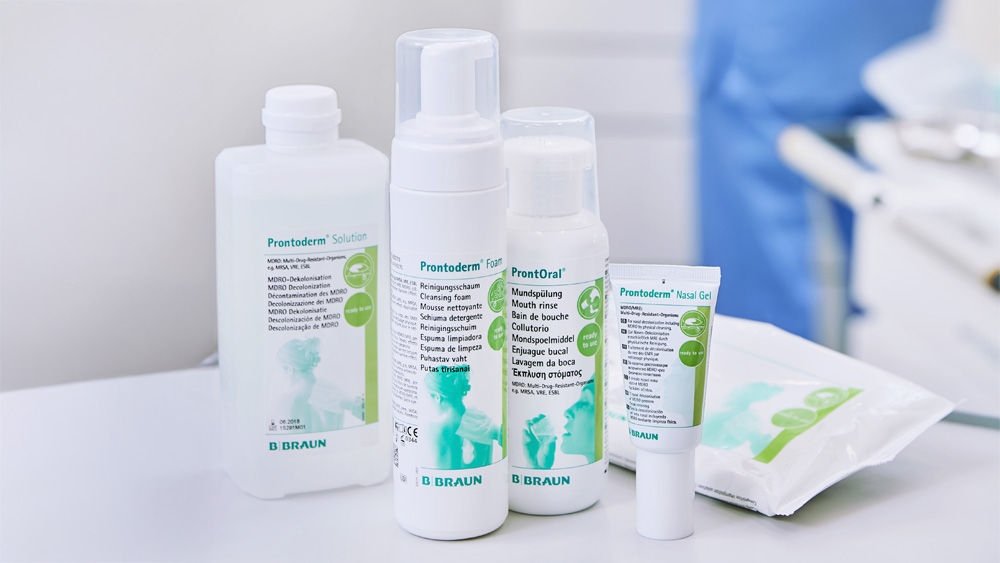No content results match your keyword.
Content
You have successfully logged out.
Not registered yet?
No content results match your keyword.
Content
No product results match your keyword.
Products
Let's fight infections
Hospitalization can become a reality for anyone of us, whether it is a fractured bone, a heart defect, kidney stones or any other reason. While you place your trust in the healthcare provided by professionals, you also play a vital role in this process.
Nobody wants to get an infection in hospital, nevertheless, the risk is there.
Each year, more than 4 million patients in Europe contract at least one healthcare-associated infection during their hospital stay[1].
Will you undergo surgery soon? Entire hospital teams take great care to avoid infections every day. However, you as a patient, along with your relatives, can contribute greatly to avoiding infections after your operation. Our Stay-healthy brochure serves as a road map, preparing you for both your surgery and the recovery that follows.
Hospital infections can involve various microorganisms, including bacteria, viruses, fungi, and even multidrug-resistant organisms (MDROs). Preventing infections during hospitalization is crucial for all involved parties. And you can actively contribute to efforts to reduce such hospital-acquired infections (HAIs).
How? By taking preventive measures and preparing for your hospitalization with a carefully performed antibacterial whole-body wash. You should do this even when an ambulatory surgery or a one-day-admission is scheduled – in your own interest and in the interest of all other hospitalized patients as well as of the caregiving staff.
Clean skin. Protected health. Strengthen safety to help reduce HAI.
Bacterial colonization on the body of healthy individuals is quite normal, physiologic, and even beneficial, e.g. for the skin’s protective acidic mantle. But there are situations and circumstances where these microorganisms may cause complications, especially during hospitalization.
In individuals with a weakened immune system, for example, such normally harmless bacteria or pathogens can cause severe infections or more serious diseases. This can lead to severe complications and delayed recovery or healing. Additionally, a critical risk is the transmission of multidrug-resistant organisms (MDROs) from the skin into wounds or the blood during surgery.
As MDRO colonization constitutes a relevant risk factor for the individual patient and other hospitalized patients, one current approach in many hospitals is to screen patients for MDROs, especially prior to surgeries. Thus, if patients are found to have multidrug-resistant pathogens, in most cases they must be immediately isolated or sent back home and surgery or other treatment is postponed.
You can contribute to your own safety and the safety of other patients.Take preventive measures and prepare for your hospitalization with a carefully performed antibacterial whole-body wash to decolonize your skin, hair, mouth and nose and so reduce the risk that your treatment in the hospital is postponed because of microbials on your skin.


Prontoderm® is indicated to perform a carefully done whole-body wash at home. We recommend starting four days before your hospitalization performing the fifth and final wash of the decolonization cycle on the day of surgery[2],or according to the recommendation of your healthcare professional.
B. Braun recomends Prontoderm® because it...

Your feedback matters! Participate in our customer survey to help us enhance our website, products and services. Thank you for your support!